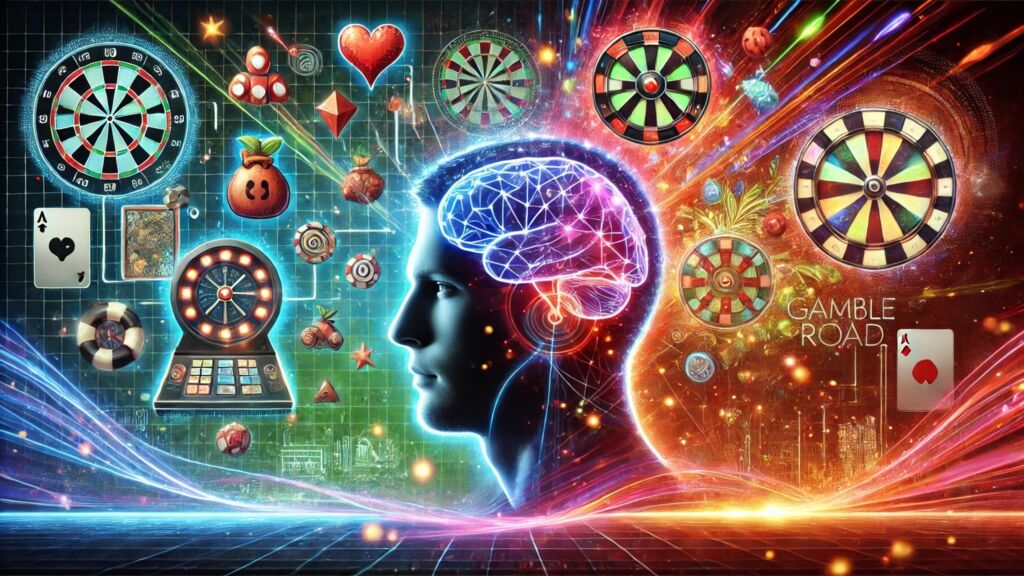Losing a substantial amount at the casino can impact more than just your wallet; it can affect your emotional and mental state. Employing strategies to handle these losses is important for both financial recovery and mental health. This guide explores practical techniques to help you overcome a heavy setback in gambling, enabling you to come out stronger and ready to make wiser decisions moving forward.
Grasping the Effects of Major Gambling Losses
Suffering a large gambling loss can resonate beyond mere financial implications. It's not just about the depleted cash but also about dealing with feelings of disappointment and potential life disruptions. Understanding these broad effects is an essential start in learning how to cope and recover.
Emotional and Psychological Reactions
In the wake of a large gambling loss, a torrent of intense emotions can arise, ranging from immediate disappointment to more drastic feelings of anger and gloom. Such significant psychological impacts can resemble grief or trauma, generating feelings of guilt, especially if these losses strain relationships with loved ones. Accepting that these emotional reactions are normal allows for more effective healing.
Furthermore, this psychological toll can reflect in how you behave. Some might become reclusive or find it hard to talk about their situation because of embarrassment. Others may obsess about winning back what they lost, a trap known as 'chasing losses,' which can deepen the problem. Acknowledging these changes is crucial to seek help in time.
Financial Repercussions
Financial fallout from large gambling losses often strikes immediately. Depending on the severity, it may require tighter budgeting or lead to heavier crises like accruing debts and financial stress in relationships. Understanding the domino effect these losses can have helps in planning your recovery.
This financial strain often extends beyond personal finances, affecting family resources intended for vital needs like education or retirement. This insecurity can impact your work life too, lowering productivity and causing job anxiety. Knowing these possible outcomes is crucial for not just recovery but preventing future financial pitfalls.
Immediate Response to a Serious Loss
The actions taken right after a massive gambling loss can significantly impact your recovery journey. Acting on raw emotions can worsen your situation, whereas calm and calculated steps will help in managing the aftermath.
Step Back and Assess
The first crucial step post-loss is to distance yourself from gambling—avoid trying to recover losses or acting impulsively. Take a break, whether from physical casinos or online platforms, to look at things more clearly. This break stops further impulsive losses and helps you see the situation more rationally. It's important not to fall into the trap of chasing your losses.
Assess the situation pragmatically; measure the financial and emotional toll. What have you lost in monetary terms? How is this affecting your overall savings? Equally important is gauging your emotional reactions like anxiety or shame. This evaluation helps lay the groundwork for a solid recovery strategy.
Acknowledge and Accept Emotions
Recognizing the emotions following a big loss is crucial for moving forward. Understand that feelings like anger and shame are natural responses. Affirm your emotional experience instead of suppressing it, which could lead to more stress and unhealthy coping methods.
Take active steps in processing these feelings constructively—whether through journaling, confiding in trusted friends, or engaging in calming activities. Exercise can also serve as a healthy outlet to help regain emotional balance. The goal is to face these emotions positively, not eliminate them.
Seek Immediate Support
Seeking Immediate Support After a Big Loss
Isolating oneself can intensify the negative emotions post-loss. It's key to reach out to friends and family or professional aid, such as counselors, providing a much-needed boost during tough times. Talking to someone who offers understanding can help alleviate isolation and give both emotional and practical relief.
Professional support is equally invaluable. Contacting helplines or therapists who specialize in financial troubles and gambling can offer objective help and planning for the future. Despite stigma, seeking this help is a proactive move essential for recovery.
Crafting a Long-Term Recovery Strategy
Financial Recovery Strategies
While early actions are vital for damage control, establishing a long-term plan is necessary to fully recover and prevent similar future scenarios. This plan should tackle financial rehabilitation, emotional recovery, and methods for smarter or no gambling. An all-encompassing approach is vital for truly rebuilding and advancing.
Approaches for Managing Significant Financial Downfalls - GambleRoad
Re-evaluating Gambling Habits
Facing a major financial loss at a casino transcends mere monetary concerns; it often brings about a wave of emotional and psychological hurdles that need addressing.
Newest Casino Promotions, Unique Deals, and Complimentary Initial Offers. Objective Casino Assessments by uptownpokies-app.com
Unique casino promotions are targeted specials provided to specific groups like frequent gamblers or loyalty program participants, offering them benefits not available to all.
No Deposit Casino Bonuses are incentives where new members receive complimentary rewards just for signing up, at select casinos.
Free spins are rewards that online casinos provide, allowing gamblers to play designated slot games without using their own funds as bets.
Casino First Deposit Bonuses are benefits given to new users upon making their initial financial deposit at certain casinos.
Tactics for Managing Noteworthy Losses
Setting Realistic Gambling Limits
Undergoing a major financial blow at a gambling establishment is more than a simple hit to the wallet; it can initiate a series of emotional and mental trials. Mastering effective methods to manage such substantial losses is vital, not only for financial continuity but also for emotional health. This article explores reliable techniques and practical actions to steer through the aftermath of heavy gambling losses, aiming to strengthen resolve and enhance decision-making skills for future gambling activities.
Recognizing the Ramifications of Major Losses
Substantial gambling losses can deeply affect more than just finances; they can also ignite a sense of emotional upheaval and life disturbances. It's not simply the financial deficit but the accompanying feelings of inadequacy and disruption that multiply the impact. Identifying these varied impacts is the first move toward efficient coping and recuperation.
Reactions of Emotion and the Mind
When faced with a large gambling setback, a whirlwind of strong emotions often follows. While disappointment is to be expected, these emotions can quickly transmute into anger, irritation, or even hopelessness. The mental burden can be intense, sometimes mirroring grief or trauma. Feelings of shame often arise, especially if losses were kept secret from family members or worsen the family's financial situation. Accepting these emotional outcomes is an essential step, as suppressing them can harm long-term mental health. Recognizing that these emotions naturally accompany loss can guide individuals toward healthier processing methods.
Additionally, the mental strain can reflect in behavior changes. Some may withdraw into isolation, fearing judgment or too embarrassed to communicate their situation. Others might fixate on regaining their financial standing, creating a cycle of relentless gambling that worsens the initial loss. Noticing these potential psychological and behavioral shifts is crucial for timely intervention and seeking necessary help.
The financial fallout of significant gambling losses is immediate and stark. Depending on the severity, individuals might encounter various financial challenges. From minor adjustments like delayed purchases or tighter budgets to major issues like accumulating debt, strained personal relationships due to money stress, or risking valuable assets. These substantial losses can sometimes unleash a chain reaction of financial instability, where individuals seek high-interest loans or credit for recovery, intensifying the debt cycle. It's vital to recognize these long-term financial impacts when forming plans for recovery.
The financial burden might even extend its reach to affect family and dependents, consuming savings meant for essential life milestones such as schooling or retirement. This ongoing uncertainty can threaten professional stability, reducing work performance and exaggerating job insecurity risks. Therefore, understanding financial repercussions goes beyond acknowledging immediate losses, requiring foresight into preventing cascading effects on total financial well-being.
Initial Measures Post Major Setback
Right after facing a large gambling loss, the decisions you make can significantly determine your recovery journey. While impulsive reactions might intensify the situation, deliberate and thoughtful actions can set the tone for recovery. Focusing on self-care and taking smart, composed steps becomes critical during these significant initial stages.
The immediate priority after incurring a major loss should be stepping back from all gambling engagements. This isn't the opportunity to chase after lost amounts or make emotionally-fueled decisions. Instead, use this time for calculated retrospection and analysis. Distance yourself from both physical and online gambling sites to attain an emotional reprieve and gain clarity. The aim is to prevent escalation through impulsive wagering. This step back shouldn't include attempts to 'recover' by gambling further, as this 'chasing losses' mentality can worsen the emotional and financial dilemmas. A temporary hiatus from gambling forms the essential first step to regain control.
Following the strategic retreat, it's crucial to perform a comprehensive evaluation of the scenario. This demands a candid examination of the numerical depth of your losses and their broader impacts. Precisely identify how much was lost and calculate what portion of your dedicated gambling budget or savings this represents. Equally, assess the emotional toll—are you anxious, guilty, ashamed, or enraged? Grasping the emotional ramifications is as imperative as understanding the financial ones. This full assessment forms the foundation for a robust recovery strategy.
Recognizing and affirming emotions derived from a substantial loss stands as an essential component of the healing process. Comprehend that feelings of anger, sadness, or shame are typical reactions to such setbacks. Attempts to stifle these emotions can backfire, potentially scaling up stress levels and nurturing harmful coping practices. Allow those emotions to surface without judgment—knowing that their presence is transient. They decrease over time through effective coping techniques. This form of acceptance isn't about accepting the loss as justified; it's about validating the emotional passage you're going through.
Once you become aware of your emotional state, it's about working through these feelings in supportive ways. Note your emotional state through journaling, share your burdens with someone trustworthy, or adopt calming practices like mindful breathing or meditation. Physical exercise serves as a tool for emotional regulation by relieving accumulated stress and improving your mood. The objective is to venture towards helpful expressive outlets rather than turn to adverse habits like reclusiveness or returning to gambling activities. Skillfully addressing these emotions propels towards healing and heightened resilience.
Seeking Immediate Assistance
In dealing with sizeable gambling losses, reaching out for immediate help plays a central role. Directly addressing isolation issues helps in dealing with guilt and despair, boosting effective coping. Establish endless connections with caring people or resources, providing critical emotional backing during trying times. Talk openly to a family member or friend who is patient and non-bias; their empathetic support can pave the way for emotional relief alongside practical advice. Confiding in those who are understanding can diminish feelings of solitude while offering constructive guidance and reassurance.
Further, pursuing professional guidance may prove invaluable. Whether it's through gambling hotlines or therapy aimed at tackling addiction and financial pressures, these resources offer confidential, balanced support, and practical measures to counter gambling losses and foresee future issues. With many gambling hotlines available around the clock, they provide instant emotional assistance and direction. Therapists offer a longer-term path, working on underlying causes that perpetuate gambling behaviors while fostering tailored coping solutions. Seeking professional advice is a step showing resolve and proactive pursuit of recovery.
Formulating a Sustainable Recovery Strategy
External Resources:
-
Immediate measures are vital to respond to the initial shock from large losses; however, piecing together a long-term recovery strategy ensures ongoing recovery and prevention. This strategy should weave together fiscal recovery, emotional health, and responsible gambling methods—or a choice to abstain from gambling altogether. A well-rounded proactive approach aids in re-establishing stability and progress.
- Gamblers Anonymous
- GamCare



